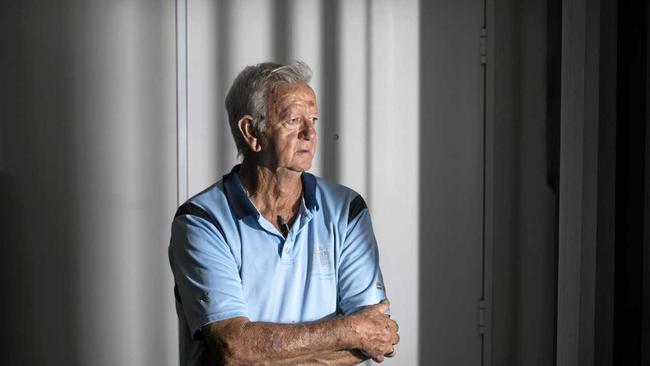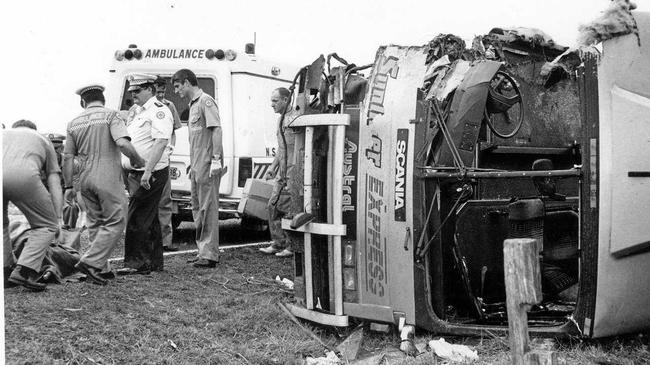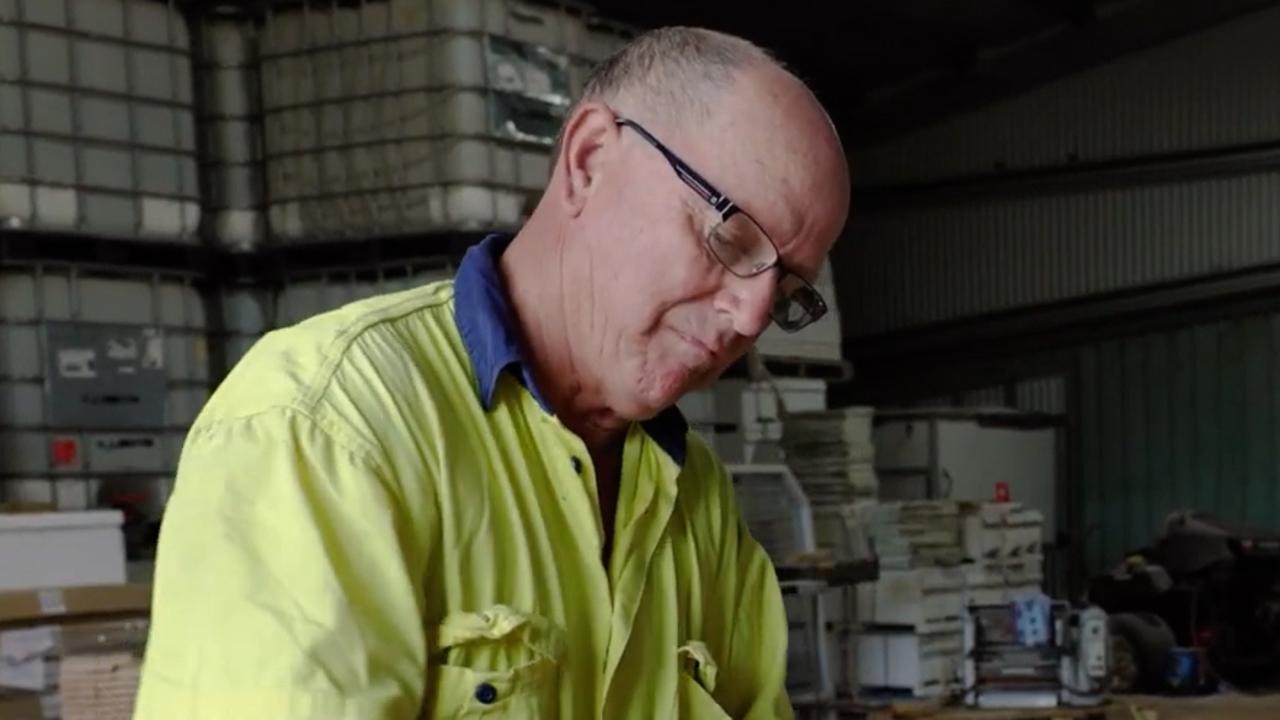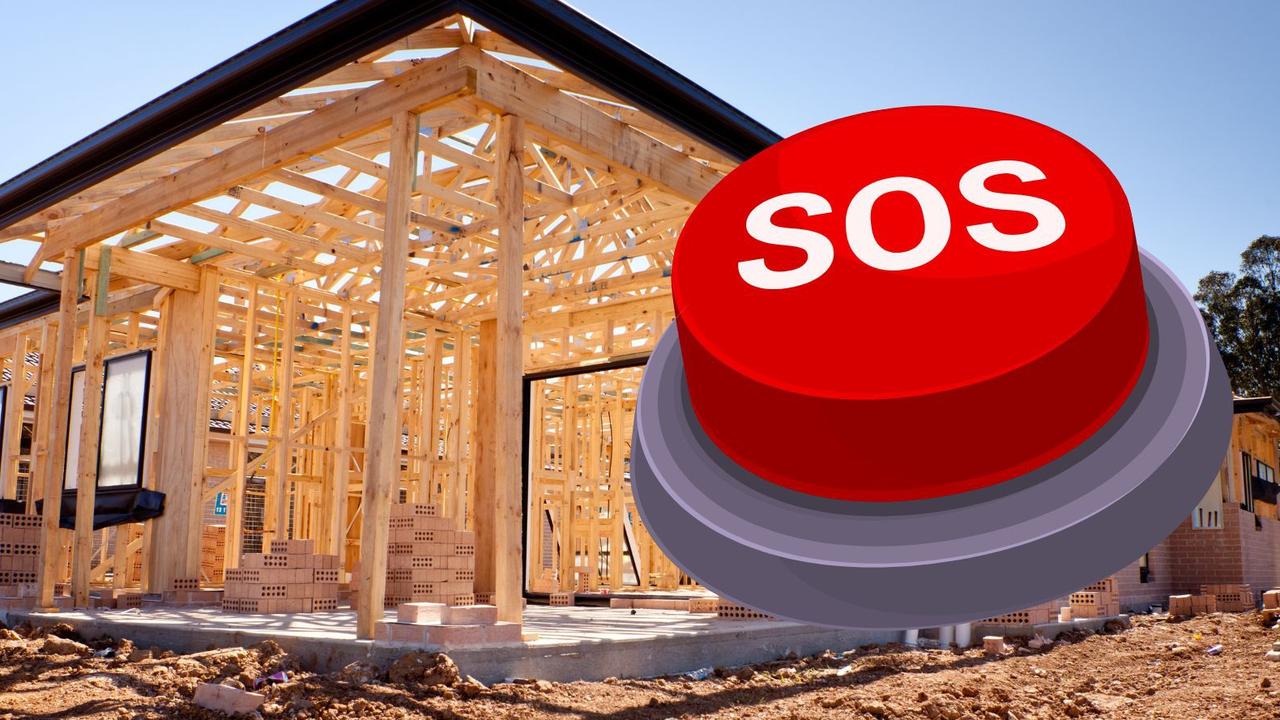'It was like a war zone': life on the frontline
Former paramedic Robin Smith recounts his role in the Cowper bus crash

Grafton
Don't miss out on the headlines from Grafton. Followed categories will be added to My News.
WALKING onto the scene of the Cowper bus crash was what former paramedic Robin Smith imagined a war zone to look like.
"I was walking on bodies, trying to get into the bus."
Reliving his role in one of the most horrific and devastating accidents in Australian road history will leave him having nightmares for the next week, but regardless Robin talkspurposefully about his long, and at times hair-raising career.
He spent 26 years of his own life saving others and attending some of the most prominent accidents that have been burned into the memory of the community.
Seventeen years after retirement, he still experiences the life-long impacts of a profession physically, emotionally and mentally demanding.
"It's not all bad days", Robin said.
READ: Exclusive story with Alice Springs Extreme Medics Part 1
His memories are more than nightmarish flashbacks, he has made life-long friends in the ambulance service, embedded himself as a critical part of the community and is proud of the innumerable lives he has battled to save.
Spurred by the loss of his father from a heart attack when Robin was only 22-years-old, he vowed to help people in whatever way he could.
His career began with the SES rescue squad before he was offered a full-time position as a paramedic in his home town of Gosford and moved up to Grafton three years later.
Throughout his time at the Grafton Ambulance Station, Robin was known as the guy that never got the simple jobs.
"(A colleague) said to me 'I love working with you because you never just get a fractured leg, or a simple job, it always has a twist to it'," he said.
On October 20, 1989, the day of the Cowper bus crash, Robin was off-duty, asleep in the early hours when the call came through that they needed all hands-on-deck.
"They picked me up from home, all I had was my overalls and my stethoscope."
"(There was) stuff everywhere, people were trapped in the bus, the bus was on its side."
"The hardest part was at the front of the bus where the windscreen was missing. I started to walk in, the bus was on its side and you're in the darkness, there is only a bit of light from the torches," he said.
"I was walking on bodies, trying to get into the bus."
"I went about two metres walking on people and I couldn't do it any more, I had to get out.

"I got some blokes to lift me up to go through the air vents of the bus and went in to try and find who was still alive and who wasn't."
Chaos surrounded the bus. Emergency services had swarmed to recover as many victims as possible.
It was all about prioritising, making the decision of who could be saved, and who couldn't be.
"The ones that you couldn't do anything for went to one position, the next ones that were more salvageable went into another position," Robin said.
From inside the bus to in the back of an ambulance, Robin started his first trip to the hospital, treating three patients alone.
A convoy of cars brought patients to the hospital, one after another. Like clockwork, Robin dropped off and was called straight back to the crash site.
The second trip Robin found himself alone in the back of an ambulance with five body bags.
The paperwork, recounting and detailing the treatment of each victim is a part of a paramedic's job we easily forget about.
That night Robin had to document the bodies of the 21 victims of the crash. Taking each body bag, opening it and checking everything off.
"When I opened the next body bag there wasn't a person in there. There was just bits and pieces of different people," he said.
"I lost it. I said I'm going. 'I can't stay here any more'."
The ambulance service 30 years ago left paramedics to their own devices after devastating incidents that would take a toll on the most resilient and courageous of us.
The 'toughen up' culture prevailed throughout Robin's time in the service. He turned to the church as a "tower of strength" for extensive counselling.
But it was the mateship of his fellow medics that Robin leaned on to keep him going day after day.
"If they weren't there you were lost. You need them, because you can't go home and talk to your wife about what you've seen. They know what you've seen at an accident site."
It seems almost impossible to live a life as extraordinary as Robin's and remain as humble, resilient and kind. Somehow, he has managed it.
The profession is demanding, exhausting, and terrifying but for Robin, it was all worth it.
"To save someone's life is the biggest buzz you ever get. I've never taken drugs, but I believe that is the biggest buzz you can ever get."
"To see someone who was deceased, still walking around years later, that's rewarding in itself."
In 2001, Robin began a difficult adjustment into retired life.
Robin spends his time flying his drone and working as president of the Grafton Dragon Boat Club he and his wife, Maree O'Meally-Smith, founded.
While the challenges he faced in three decades of service still haunt him, the passion Robin has for helping others persists.
Originally published as 'It was like a war zone': life on the frontline


